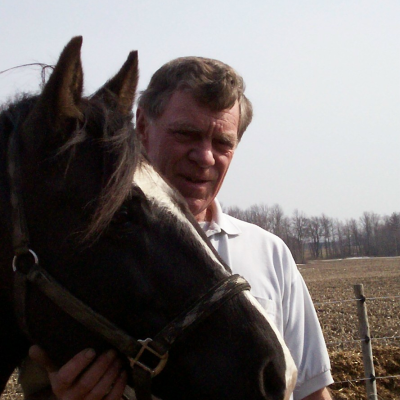
Peter Wright
Podcast af Peter Wright
Prøv gratis i 7 dage
99 kr. / måned efter prøveperiode.Ingen binding.

Mere end 1 million lyttere
Du vil elske Podimo, og du er ikke alene
Rated 4.7 in the App Store
Læs mere Peter Wright
Questions & Ideas For Thriving In A Changing World
Alle episoder
11 episoderPanic and fear are two of the most powerful emotions driving human behaviour. We are seeing a wave of overreaction to what is so far, an epidemic with a low mortality rate. A virus that makes few people ill – 80% of those infected show no or very mild symptoms. panic [https://i0.wp.com/peterwrightsblog.com/wp-content/uploads/2020/03/corona-4912180_640.jpg?resize=640%2C360&ssl=1]Image byVektor Kunst [https://pixabay.com/users/iXimus-2352783/?utm_source=link-attribution&utm_medium=referral&utm_campaign=image&utm_content=4912180]fromPixabay [https://pixabay.com/?utm_source=link-attribution&utm_medium=referral&utm_campaign=image&utm_content=4912180] I am writing a post about the next stage of my Camino journey, I will publish it next week. But my mind keeps wandering to the panic about the coronavirus epidemic and the effects of the overreaction to it. This morning, I recorded an interview with Kathleen Beauvais for her Karytechsolutions business. While we had our equipment set up – and I was reasonably presentable – we decided to record our chat about the wave of panic that is spreading across much of the world. We are planning to make this a weekly show. A 5-minute chat about a major event or issue that’s making the news, we will also talk about marketing, business, and life stuff. Here’s our first episode. We have also recorded an audio version which you can listen to on the media player at the end of the post or download to listen at your leisure from the link below. Kathleen and Peter talk about coronavirus panicI am not ignoring the potential risk from the virus. I do understand that it could infect millions of people. However, we should keep the risks in perspective and not allow panicked reactions to close down our economies. Such is the nature of virus epidemics that no matter how many events and activities we cancel or how many times we wash our hands, the situation will get worse before it gets better. It will take a combination of natural factors and sensible interventions to end the epidemic. CORONAVIRUS PANIC AND THE ECONOMY The potential damage to the economies of the world from the reaction to the virus is the real threat. What good is it to prevent people getting the virus but wipe out their jobs in the tourist, entertainment, hospitality and many other industries. The plunging share prices and lower dividends of listed corporations will seriously affect pensions. This article in the Independent [https://www.msn.com/en-ca/news/world/coronavirus-will-bankrupt-more-people-than-it-kills-%e2%80%94-and-thats-the-real-global-emergency/ar-BB11c9K6?li=AAggFp5#image=BBZaM5o|2] warns that the coronavirus will bankrupt more people than it kills. It suggests that the reaction by governments and panicked consumers could unravel the global economy. It seems that the media are feeding this frenzy, people are reacting by unnecessary stockpiling and governments are using it as an excuse to further restrict personal freedoms of choice, travel and association. It’s time to put the risks in perspective. We would love some feedback on our video, leave a comment here or on YouTube. [https://i0.wp.com/signatures.mylivesignature.com/85825/zimpeterw/9e761022a0d8c110fe1e99ec85c05b04.png?w=860] [http://www.mylivesignature.com]p.s. My story about my dog Mike [https://peterwrightsblog.com/memorable-moments/short-story-about-my-dog-mike/] was picked up by a news service [https://www.newsbreakapp.com/] app in the USA which sent over 800 visitors to the post in 3 days. That shows the power of stories – especially ones about animals. Clicking on some links on this site will let you buy products and services which may result in us receiving a commission, however, it will not affect the price you pay. The post Panic, Coronavirus and Devastated Economies [https://peterwrightsblog.com/the-contrarian-view/panic-coronavirus-and-devastated-economies/] appeared first on Peter Wright [https://peterwrightsblog.com].
Community, adult playgrounds and what next all came into my mind this week for different reasons. Why? because although they are all different topics they are interconnected. Let’s start with adult playgrounds, move onto community, ponder what’s next and then see how all three might be connected. community [https://i0.wp.com/peterwrightsblog.com/wp-content/uploads/2019/04/ball-pit-1661374_640.jpg?resize=640%2C426&ssl=1]Ball Pit courtesy 3dMan-eu / pixabay [https://pixabay.com/photos/ball-pit-fun-colorful-pleasure-1661374/] On the way to an event in Thorndale, Ontario on Wednesday a week ago, I listened to a discussion on adult playgrounds [https://www.cbc.ca/news/canada/calgary/adult-playgrounds-gaining-in-popularity-1.1152265] in Canada. I expected to hear about golf courses, climbing walls, paint ball parks or perhaps something more sinister. To my surprise the participants were talking about the same types of playgrounds children have loved for generations. I heard one of the women – I would guess she was 40 ish – laughingly describing her enjoyment of playing in a ball pit like the one in the photo above. The interviewer then spoke to a couple in their late 60s who were having the time of their lives. They were regulars at the adult ball pit. They enjoyed the freedom of playing like children without having to worry about burying a young child under thousands of plastic balls. My first reaction was ” Really? It sounded as if I am hearing someone entering her second childhood.” Then I thought about it and realised that playing in a ball pit is all about having fun, it might not help your fitness level as much as running, cycling or walking. But, it is probably better for you than watching TV. So who cares whether it’s considered a kid’s or an adult’s form of fun? Is there really any difference? ADULT PLAYGROUNDS OR OUTDOOR GYMS? It’s hard to know where adult playgrounds stop and outdoor gyms start. It seems many of the more successful combine both. With outdoor gym equipment for the fitness enthusiasts, swings, slides and more fun stuff for the others . Here’s a selection of 13 different adult playgrounds around the world [https://www.complex.com/style/2014/01/adult-playgrounds-around-the-world/chamber-of-horrors]. Although I am not sure the first one, Chamber of Horrors is rightly called a playground. Britain is home to many outdoor gyms and adult playgrounds. One example is an innovative park in Hull that lets users generate electricity for the grid as they pedal, push and pant their way to fitness. Fitness experts are seeing many advantages of taking gyms outdoors. Because many users are put off conventional indoor gyms by the price of membership, crowded facilities, noise and rigid scheduling. In contrast, outdoor gyms are generally built by municipalities, are free and can be used at any convenient time. Read about the British experience in this BBC report [https://www.bbc.com/news/magazine-17818223]. COMMUNITY The event I attended was the Teeny Tiny Summit held at the Purple Hill [https://www.purplehillcountryhall.com/thehall.htm]Music Hall. The theme was “Big Ideas For Small Places” community [https://i0.wp.com/peterwrightsblog.com/wp-content/uploads/2019/04/PIC_0890.jpg?resize=832%2C624&ssl=1]Purple Hill Country Music Hall, Thorndale, OntarioSmall towns and villages in Ontario are slowly dying. This is not a new thing, it has been happening for decades and is affecting small communities in most of the world. The urban drift is hard to reverse. More new jobs are created in large cities, the attraction of city life is hard to resist for under or un-employed young people. As rural populations decline, businesses and service providers in small towns close their doors. The ability to use the Internet for many transactions that only 10 years ago required a trip to the bank, post office or to pay bills has led to many of these closures. Business closures mean people move away, houses stand empty, less money in the local economy. The cycle repeats until the town becomes a retirement community or a ghost town. THE TEENY TINY SUMMIT Keynote speaker, Australian Peter Kenyon from the Bank of IDEAS [https://bankofideas.com.au/], enthralled the audience of over 100 with so many success stories from Australia and New Zealand that it was difficult to remember them all. I wrote about one of these in this post on Tiny Home Geniuses. [https://tinyhomegeniuses.com/tiny-home-movement/tiny-homes-in-ontario-developments/] Other speakers presented heartwarming Canadian success stories about small towns being revitalised. The Mayor of Lucan, Cathy Burghardt spoke about the successful campaign to win the 2018 Kraft Hockeyville award for Lucan. Shelagh Morrison shared the success of the Ailsa Craig Quilt & Fibre Arts Festival. Arden McClean and Becky Clark took us through the development and launch of the I Love Thorndal [https://www.ilovethorndale.ca/]e promotion which has now inspired other small communities in Ontario and beyond. Terrilee Kelford of Cornerstone Landing youth services spoke about the problem of homeless young people in smaller communities where there were fewer facilities than in larger centres. Encouragingly, she mentioned positive moves by provincial and local levels of government to make it easier to build or park tiny homes on residential plots. In addition she told us about her organisation’s plan to build a tiny home community with five tiny homes as a pilot project for affordable housing for low income earners. THE TAKEAWAY FOR COMMUNITY SURVIVAL The most important message I got from the summit was the fact hammered home by Peter Kenyon and endorsed by all the other speakers was that the survival of small communities starts within those communities. It does not start with a government grant, a fact finding commission, an outside project, a team of experts or a government development programme. In all the successful communities which had avoided extinction and a few which had surpassed their former glory someone or a small group did something. That someone decided that their town was not going to die. They looked at their resources, had a vision and worked with what they had. [https://i0.wp.com/peterwrightsblog.com/wp-content/uploads/2019/04/PIC_0889.jpg?resize=640%2C360&ssl=1]Quotation used by Peter KenyonA leader or leaders soon emerged, others caught their excitement and things started happening. That’s when some communities decided to get advice from consultants, get grants or talk to sponsors. Some teamed up with neighbouring communities. AI, REMOTE WORKERS AND COMMUNITY Technology in various forms is taking away “traditional” jobs by automating many and exporting others to developing countries. In some ways, for example by making online shopping and banking easier, by making farmers less dependent on human labour, it is aggravating the slow dying of small communities. The same advances in technology and changes in the nature of work are making it easier for many of us to be remote workers. I am typing this post on a computer in my home office on a farm in a rural area. A farm, not even a hamlet or a village. The nearest small city is only 12 km away, but with a mobile phone, laptop and Internet connection I could work anywhere. I can also write for clients on the other side of the world. I am working with a local business Karytech Solutions [https://karytechsolutions.com/] that provides skills in the reverse direction. Finding technical workers in Europe to provide unique expertise to North American businesses remotely. With a partner in Europe another in Waterloo, we communicate with each other and clients by video conference call from the comfort of our home offices. WHY ARE ADULT PLAYGROUNDS IN CITIES BECOMING POPULAR? Because many city dwellers enjoy being outside, being able to exercise in the fresh air. Being able to just come and go as they please, not have to squeeze visits to overcrowded, indoor gyms or entertainment centres into tight schedules. These facilities offer a degree of freedom and simplicity. The pressure to develop more land for urbanisation takes away farmland needed for growing food. It doesn’t make sense that schools, houses and commercial buildings in smaller centres are standing empty. Doomed to decay while acres of farmland around new urban housing developments are being turned into housing. All requiring more acres for new highways, shopping malls and parking lots. If the projections of a decline in the global population mentioned in this post [https://peterwrightsblog.com/the-contrarian-view/assumptions-over-population/] are correct, many of these new developments may be concrete and ashphalt deserts in my grandchildren’s lifetimes WHAT NEXT? How can the problems of dying small communities, loss of traditional jobs, expense and stress of living in a big city, damage to the environment by long commutes and traffic jams be turned into opportunities with advantages for all the players? Why do people like living in small communities? * Clean air, healthier * Short or no commuting times * Lower housing costs * Friendlier neighbours * Closer to nature * Lower crime rates * Peaceful * Lower stress levels * Less impact on the environment All these are about quality of life. Over the last 20 years, technology has overcome many of the old disadvantages of living in a small community. * Income – many opportunities to work remotely * Entertainment – Streaming video services overcome poor broadcast reception * Online commerce for banking and shopping * Boredom – many opportunities for exercise, volunteer work exploring the countryside, community activities. * Antiquated houses – many small, rural communities have modern housing choices. CONCLUSION From the summit it is clear that the trend of small communities fading into extinction can be reversed. Small communities have a lot to offer increasingly jaded big city dwellers. Technology, simple economics, new forms of entertainment, opportunities for a healthy lifestyle and concern for the environment can all work in favour of small towns and villages. It has to be a bottom up, starting from the inside process. It just needs one person to start, to have a vision and get others excited. What do you think? Do you see advantages in revitalising rural communities? Leave a comment. [https://i0.wp.com/signatures.mylivesignature.com/85825/zimpeterw/9e761022a0d8c110fe1e99ec85c05b04.png?w=860] [http://www.mylivesignature.com] Clicking on some links on this site will let you buy products and services which may result in us receiving a commission, however, it will not affect the price you pay. The post Community, Adult Playgrounds – What Next? [https://peterwrightsblog.com/observations/community-adult-playgrounds-what-next/] appeared first on Peter Wright [https://peterwrightsblog.com].
Revitalize has been on my mind lately. It started with a conference I attended at the end of April. That was a conference to look at revitalizing declining church congregations, but it had some valuable lessons for our personal and business lives. revitalize [https://i0.wp.com/peterwrightsblog.com/wp-content/uploads/2018/05/KIMG0199-300x225.jpg?resize=300%2C225]Early morning sun behind greenhouse tunnel Warmer mornings and earlier sunrises make it easier to get up earlier. Last week I took a step to revitalize my life by getting up at 5:30 instead of 6:15 and getting out for my daily walk before 6:00 am. The scene in the photo on the left greeted me as I turned back into our drive. The rising early morning sun shining through the tunnel was magical. At the end of a good walk, It inspired me, made me feel good to be alive and ready to grab the day by the throat and get things done. I have been up and out walking before 6:00 am each day except Sunday, for the last 2 weeks. It means I get an earlier start to my work day, feel revitalized, invigorated and happier. That great start to the day helps keep my thoughts positive and makes it easier to ignore the minor frustrations and irritations that plague all of our days at times. Another habit I follow is reading something positive every morning. Since the beginning of the year, I have been reading The Daily Stoic [https://www.amazon.com/gp/product/0735211736/ref=as_li_qf_asin_il_tl?ie=UTF8&tag=petwriblo-20&creative=9325&linkCode=as2&creativeASIN=0735211736&linkId=fa46cb3035d5f3f468aefe62370f59df] by Ryan Holiday and Stephen Hanselman. Each day of the year has a page with a quotation from one of the Stoic philosophers and an explanation by the authors. Today’s is titled “How you do anything is how you do everything“. The quotation is from Marcus Aurelius’ Meditations, 8:22 “Pay attention to what’s in front of you–the principle, the task, or what’s being portrayed” The authors expand on this by reminding us that what we are doing now is the important thing, we can speculate on what tomorrow might bring, but at this moment, we have no way of knowing with certainty that we will even be alive tomorrow. So let’s get today done properly. REVITALIZE TO THRIVE IN A CHANGING WORLD There is no question that the world is changing. I wrote about adaptability being essential for survival in a changing world in this post [http://peterwrightsblog.com/observations/adaptability-changing-world/] in April 2018 and earlier posts in March of the same year. If we continually look for ways to revitalize our lives, we will change our perspective and be more adaptable to ride the waves of change that are coming at us in many areas of our lives. Work, business, recreation, health services, entertainment, personal transport, purchasing options, changes are happening everywhere.revitalize [https://i0.wp.com/peterwrightsblog.com/wp-content/uploads/2018/05/think-2177839_640-300x300.png?resize=300%2C300] We can resist change – and some changes should be resisted. However, most changes are going to happen whether we oppose them or not. It’s our choice whether we ignore, get around or adopt them. We might resist some as a matter of principle, because of our beliefs, personal or cultural biases. We might refuse to accept others because they seriously affect our liberty, mobility or ability to go about our daily lives without the constant scrutiny of a big brother government. Accepting or resisting change will have consequences, some good for us, some not so good. Revitalizing our outlook on life will give us options and prepare us for these changes – and their consequences. HOW DO WE REVITALIZE OUR LIVES? Reflecting on the conference mentioned above, one of the presenters spoke about looking at life from a different perspective. He used the example of a new priest arriving at a small, rural, long-established parish and trying to get the congregation to agree on his “Mission Imperative”. What he thought was his purpose for being there. After a frustrating period with a serious lack of cooperation from the congregation, he realized that he should be following a “Mission Interrogative”. Finding out how he could serve the congregation, not get them to change their traditional approach to fit his schedule. We can have an interrogative approach to a changing world. Ask questions, look for ways that the changes can make our lives, easier, happier, less stressful. Decide whether to embrace, accept, ignore or resist those changes. Reflect on the consequences of our decisions. Then act, do what we think is right for us, not merely follow the herd. Taking up a new activity is a wonderful way to revitalize our lives. After a lifetime of believing I was useless at music, [http://peterwrightsblog.com/motivation/6-core-values-achieving-goals/] I bought a guitar am taking lessons and can play some simple tunes. I have started a study course on the history of Christianity, become active in a church after an absence of over 40 years. This week, I started exploring two new business opportunities. The simplest way of all is to get up early and go for a walk or a run. How are you going to revitalize your life? Leave a comment. [https://i0.wp.com/signatures.mylivesignature.com/85825/zimpeterw/9e761022a0d8c110fe1e99ec85c05b04.png?w=860] [http://www.mylivesignature.com] change graphic by geralt / pixabay [https://pixabay.com/en/think-switch-arrows-rethinking-2177839/] The post Why We Should Revitalize Our Lives. [https://peterwrightsblog.com/observations/revitalize-change-lives/] appeared first on Peter Wright [https://peterwrightsblog.com].
Risk. Something to avoid at all costs? Or a vital ingredient for overcoming adversity and survival in a changing world? Risk [https://i0.wp.com/peterwrightsblog.com/wp-content/uploads/2018/03/sammie-vasquez-549428-unsplash-200x300.jpg?resize=200%2C300]Risk in a Changing World For the last 30 years or so, a good half of my adult life, I have watched as the Political Correctness campaign has almost succeeded in removing risk from life in the Western world. From preventing children playing with balls in playgrounds or climbing trees to protecting the perpetrators of crime from the self-defence actions of the victims. A misguided social welfare system in many countries that rewards people for not making efforts to look after themselves. Systems that encourage people to stay on welfare and not take low-paid, probably unsatisfying jobs. An environment that breeds an entitlement attitude. A life without risks is a stagnant life. A sparkling stream needs movement and replenishment with a constant source of new, fresh water. So do our lives if we don’t want them to resemble a scum covered, fetid, dark pond. Most developments and discoveries in the world have happened because someone took a risk. This holds true in science, engineering, mining, agriculture, medicine, the arts and practically every field of human endeavour. We cannot grow in our personal, professional, business or creative lives unless we take risks to stretch ourselves. We can’t form new relationships unless we allow ourselves to be vulnerable, to be hurt, disappointed or let down at times. We can’t enjoy new sports or activities without risking stiff joints, skinned knees or worse. WHY THE CAMPAIGN TO ELIMINATE RISK? Certain elements in society spend huge amounts of time, money and effort in attempting to eliminate all forms of risk from modern life Conformity? Control? The attempt to remove risks and other efforts of “progressive” social engineering may have been started with the best intentions. But the more socialist elements of society have hijacked it. Aided and abetted by lawyers who find creative ways to win lucrative and often frivolous, negligence or malpractice cases. It’s often easier – and cheaper – for the defendant to strike a deal than winning a case in court. Elimination of risk can easily be promoted as a worthy cause. Sometimes it is. For example, enforcing the wearing of seatbelts in cars is proven to save lives and reduce injuries. It is a practice that makes sense. Whether it should be a law or encouraged by education is an argument for a different post. Suffice it to say that making the wearing of seatbelts a law, takes an element of risk for the consequences of personal decisions away from drivers and passengers. Another erosion of personal independence and insidious reduction of risk. Sometimes, as I wrote in this post [http://peterwrightsblog.com/overcoming-adversity/challenge-risk-consequences/], despite the precautions and safeguards, risk does have tragic consequences. CONSEQUENCES OF LIVING IN A RISK-FREE ENVIRONMENT. There are signs that we are waking up and realising that we are doing our children a huge disservice by keeping all risk out of their lives. This article in the New York Times [https://www.nytimes.com/2018/03/10/world/europe/britain-playgrounds-risk.html] reports how educators in Britain are re-introducing elements of risk to children’s playgrounds and classroom activities. They have suddenly realised what anyone with a grain of common sense has known for generations: Risk builds resilience. Children climb obstacles, use scissors, run around on hard surfaces. They scrape their knees, cut themselves (generally only once) get the odd bruise. But they survive, learn and emerge stronger for the experience. WE NEED EXPOSURE TO RISK TO SURVIVE IN A CHANGING WORLD. I wrote here about risk being the missing ingredient [http://peterwrightsblog.com/overcoming-adversity/risk-missing-ingredient-for-a-rewarding-life/]for a rewarding life, and how the sudden absence of risk from one’s life might be a contributory reason why military veterans cannot adjust to a peaceful, quiet life. risk [https://i0.wp.com/peterwrightsblog.com/wp-content/uploads/2018/03/sorry-imkirk-427089-unsplash-300x225.jpg?resize=300%2C225]Robotics In a rapidly changing world, the old model of lifetime employment with one or very few employers a “safe” pension and assured housing at the end is part of history. Add the implications of Artificial Intelligence, Automation, Robotics and more disruptive technology and it is obvious that the risks to a “normal” journey through life are increasing. Children need to be ready to cope with those and more as yet unknown risks that will affect their lives. They and all of us need to develop resilience and curious minds by taking risks. Risk is essential for Growth and Success. What do you think? Leave a comment [https://i0.wp.com/signatures.mylivesignature.com/85825/zimpeterw/9e761022a0d8c110fe1e99ec85c05b04.png?w=860] [http://www.mylivesignature.com] Jump Photo bySammie Vasquez [https://unsplash.com/photos/Zdf3zn5XXtU?utm_source=unsplash&utm_medium=referral&utm_content=creditCopyText]onUnsplash [https://unsplash.com/search/photos/risk?utm_source=unsplash&utm_medium=referral&utm_content=creditCopyText] Robot Photo bySorry imKirk [https://unsplash.com/photos/xP4l_qlUMJU?utm_source=unsplash&utm_medium=referral&utm_content=creditCopyText]onUnsplash [https://unsplash.com/search/photos/robotics?utm_source=unsplash&utm_medium=referral&utm_content=creditCopyText] The post Risk in a Changing World [https://peterwrightsblog.com/the-contrarian-view/risk-changing-world/] appeared first on Peter Wright [https://peterwrightsblog.com].
Achievements and success are necessary to find happiness according to most gurus. Achievements [https://i0.wp.com/peterwrightsblog.com/wp-content/uploads/2018/03/success-1433400_640-300x200.jpg?resize=300%2C200]Success But are they? I had another topic in mind for today’s post until I reviewed this blog’s statistics and I noticed a trend. There is a rising level of interest in goals. On 11 June 2012, I published a post titled “6 key values for achieving goals” [http://peterwrightsblog.com/motivation/6-key-values-achieving-goals/] It is one of my most popular posts. 1912 visitors have landed on it since it was published. The trend I noticed shows that from an average number of annual visits of around 230 in the early years after it was published, there were 571 visits in 2017 and 151 in the first 10 weeks of 2018. I don’t promote old posts at all, I email new posts to subscribers and mention them on social media. I send out a link to this blog itself a couple of times a week. Visitors to older posts are generally getting there through a search engine. We usually want to read about achievements, goals, goal setting after the Christmas holidays and in early January, when we think about our plans for the New Year. When the media is full of tips and ideas for New Year’s Resolutions. So why does there seem to be more interest in goals? Is it because more of us are searching for happiness? Are many of us falling into the trap of believing that we need to be successful, to reach our goals so that our achievements allow us to buy things that we believe will make us happy? If we are, we will find that happiness will be fleeting. A temporary illusion. On 2 February 2018, I wrote a little about the Prosperity Paradox [http://peterwrightsblog.com/the-contrarian-view/prosperity-paradox-happiness-pendulum/] here. The full story behind that post is in Chapter 13 of my book 5 Steps To Thriving On Adversity. [http://5stepstothriving.com/] ACHIEVEMENTS AND GRATITUDE I subscribe to a short daily motivational video message called DarrenDaily by Darren Hardy [http://dd.darrenhardy.com/] It’s a three to six-minute video that is emailed every weekday morning. In today’s video, Darren spoke about goals and how for many the conventional approach to setting and attaining goals works against us. His point is that until we start from a place of being grateful for what we do have – no matter how little that may seem to be – we will always focus on what we lack. Focusing on lack is a sure way to failing to meet our goals. He is right, I know from personal experience that being resentful of the situation I was in when I came to Canada to start a new life kept me from making any achievements. Only when I became grateful for being in a safe country with no one trying to attack me and with no shortages of basic commodities did I start to make progress. Perhaps I should go back to that old post and add gratitude as a seventh ingredient for achieving goals. ACHIEVEMENTS AND THE JOURNEY During my life, I have had more ups and downs than most. At various times, I have enjoyed a good income, been bankrupt, financially comfortable again, separated from my home, my country and all my assets. Started again doing hard physical farm jobs. On the road to financial recovery, another setback from a heart attack. During all those periods, I have sometimes been happy and sometimes unhappy. In my experience, there has been no clear correlation between wealth and happiness nor financial difficulty and unhappiness. When things were falling to pieces in Zimbabwe Sue and I did not know from one day to the next whether we would still have a home the next day or even if we would still be alive. It was a deeply worrying time, but our evening rides on our horses around the farm, looking at our cattle, seeing a huge range of wildlife, inhaling the scents of the African bush, gave us intensely happy experiences. achievements [https://i0.wp.com/peterwrightsblog.com/wp-content/uploads/2012/02/Gombo-292004-008-300x225.jpg?resize=300%2C225]Sunset on our farm in Zimbabwe What has determined my level of happiness has been the thoughts I allowed to dominate my mind. I don’t dispute that goals and achievement are important, financial success does make life easier. Freedom from worrying about paying the bills does make life less stressful. But neither of those automatically make us happier. Happiness and contentment come from enjoying the journey and finding balance. Gratitude for the simple things, like being alive, having reasonably good health, enough to eat and a roof over my head lets me enjoy each day’s journey. It lets me work towards some important goals and live a good life. Share your thoughts in a comment. [https://i0.wp.com/signatures.mylivesignature.com/85825/zimpeterw/9e761022a0d8c110fe1e99ec85c05b04.png?w=860] [http://www.mylivesignature.com] Success key image from Pixabay [https://pixabay.com/en/success-key-gold-gold-colored-1433400/] The post Achievements, Goals, Gratitude and Happiness [https://peterwrightsblog.com/motivation/achievements-goals-gratitude-happiness/] appeared first on Peter Wright [https://peterwrightsblog.com].

Rated 4.7 in the App Store
Prøv gratis i 7 dage
99 kr. / måned efter prøveperiode.Ingen binding.
Eksklusive podcasts
Uden reklamer
Gratis podcasts
Lydbøger
20 timer / måned

































